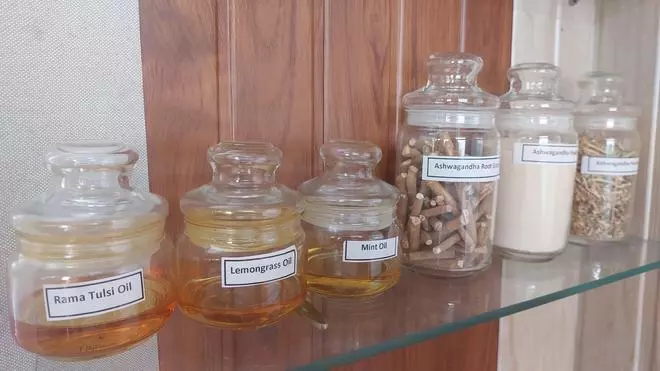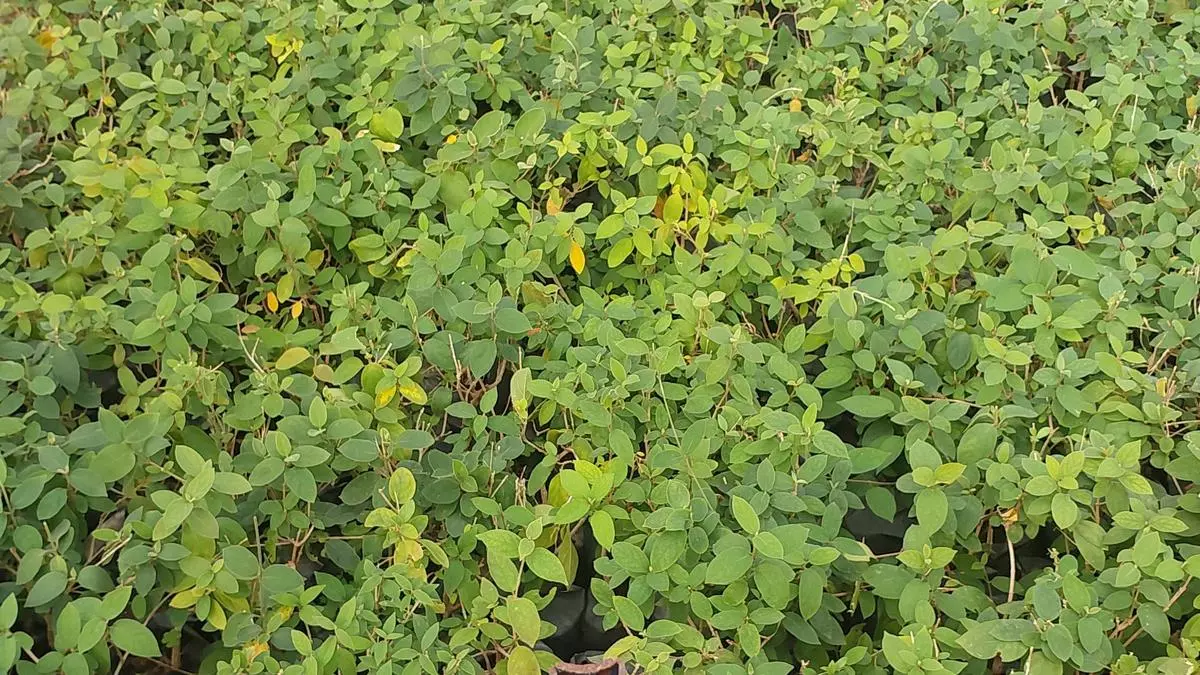ITC expands agri-Filesadmin.co operations to aromatic, medicinal herbal products
Smelling an opportunity in the burgeoning global wellness market, ITC Limited is branching out much beyond traditional crops such as wheat and rice to cultivate a new field: medicinal and aromatic plants.
In a strategic move beyond traditional crops, ITC Limited is exploring avenues in the medicinal and aromatic products segment to focus on value-added agriculture. Leveraging its proven backend agricultural supply channels, the company has developed workable models to cultivate a variety of medicinal and aromatic plants.
To equip farmers with the necessary knowledge and skills and showcase the agronomical practices in growing a variety of medicinal and aromatic plants, the company set up a dedicated 101-acre state-of-the-art organic certified farm in Sehore, Madhya Pradesh.
This farm serves as a demonstration and training centre where 27 varieties of medicinal plants are evaluated. The farm also incorporates sustainable practices such as water harvesting and in-house organic fertiliser production.
The initiative, being taken up under the Medicinal and Aromatic Plants Extracts (MAPE) programme, is anchored in two key segments – raw herbs and value-added products. In the raw herbs segment, the Kolkata- headquartered company works closely with farmers to identify suitable medicinal plant varieties, implement best cultivation practices, and establish robust market linkages.

Extracts collected from various medicinal and aromatic plants.
The current portfolio of medicinal plants that ITC is promoting for cultivation with farmers includes Ashwagandha, Tulsi (Holy Basil), Kalonji (Black Cumin), and Turmeric, among others. The company is also actively engaged in research and development on various other medicinal plants, including Stevia and Roselle.
The company is also providing support for post-harvest management, including grading and sorting, to enhance the value of the produce. In the value-addition segment, ITC processes raw herbs into extracts, formulations, and other value-added products, catering primarily to the health and wellness industry.
While the farm serves as a central hub, ITC’s medicinal plant programme extends beyond this plot.
“We are working with farmers across 14 districts in Madhya Pradesh, training them and providing support for cultivating these crops on their lands. The total acreage cultivated by farmers in the programme is over 4200 acres so far,” an ITC official said.
Farmers, who showed an interest in growing these crops, are offered comprehensive training on various aspects of medicinal plant cultivation, including crop selection, cultivation techniques, and post-harvest management.
“Farmers engaged in medicinal plant cultivation are experiencing a significant income increase of 26 per cent to 35 per cent compared to traditional crops. Average yields have also witnessed a substantial improvement, rising from 200 kg per acre to 300-350 kg per acre, with some farmers achieving close to 700 kg per acre,” he said.
He said the company offers them a buyback plan similar to those being offered in ITC’s traditional supply chain models. While farmers have the flexibility to sell their produce elsewhere, ITC acts as a willing buyer, ensuring a stable market for their harvest. While ITC’s foray into the medicinal plant sector is still in its nascent stage, the company believes that the model is yielding results.
S Ganesh Kumar, Chief Executive of ITC Agri Business Division, said, “As a part of the ITC Next strategy, the company’s Agri Business Division has pivoted its strategic focus towards rapidly scaling up Value-Added Agri Products (VAAP) portfolio to accelerate growth and competitiveness.”
“In line with the larger ITC NextGen Agriculture vision, we are focusing on promoting the cultivation of value-added crops such as medicinal and aromatic plants like Ashwagandha,” he said.
“Opportunities are being evaluated at the intersection of farmer economics, market demand and sustainability. We believe that a balanced and intelligent crop diversification strategy helps raise farmer incomes and mitigate the vagaries of weather,” he added.
